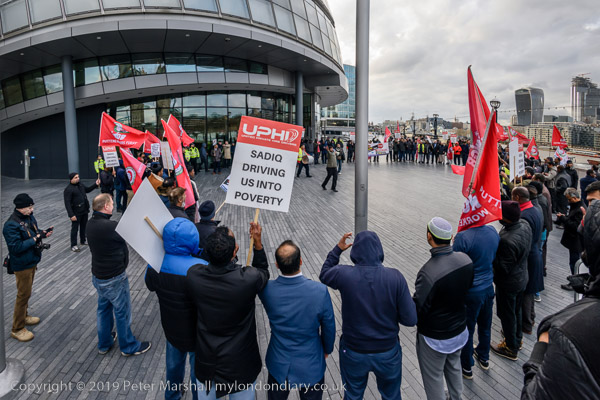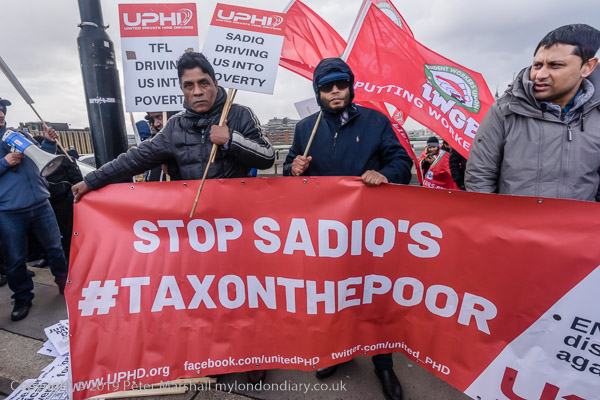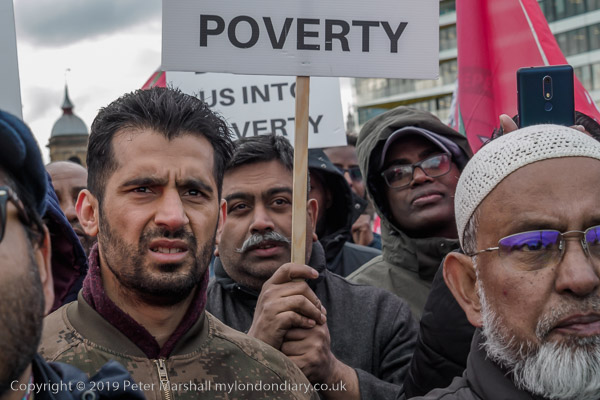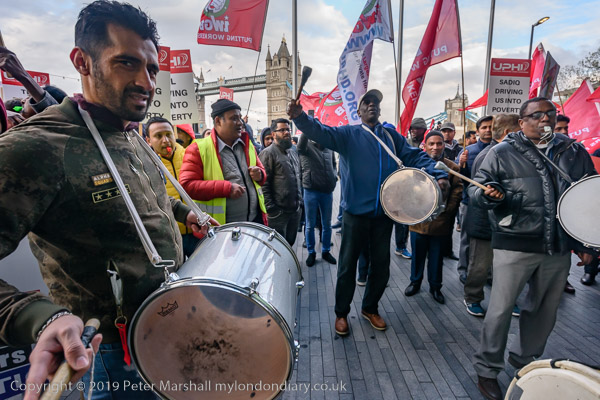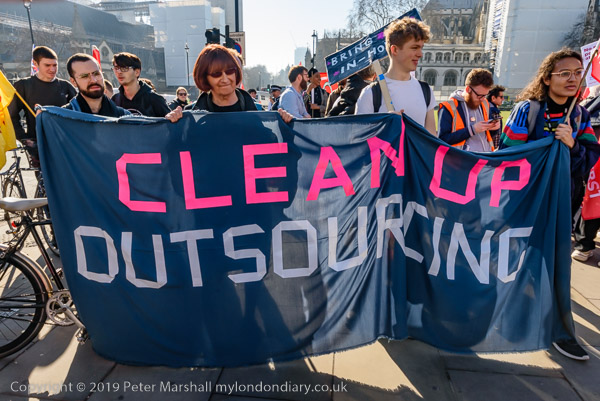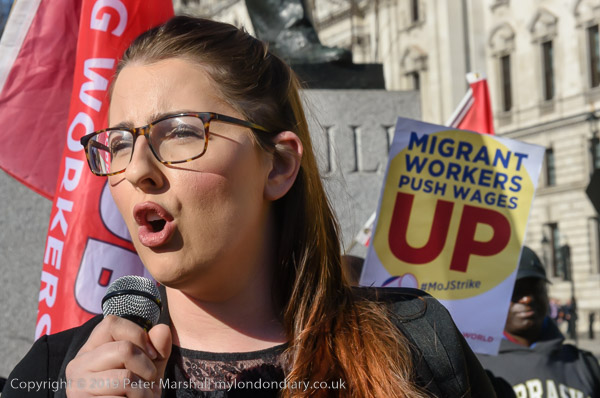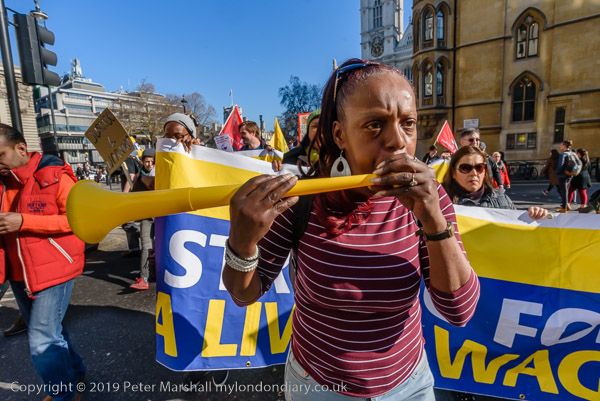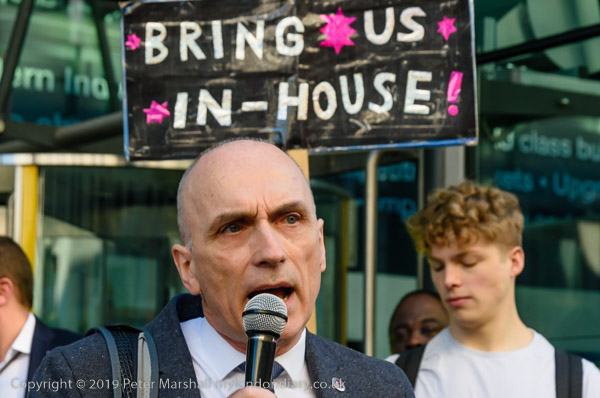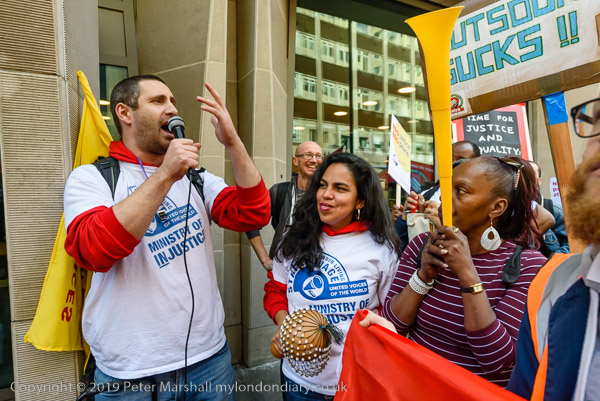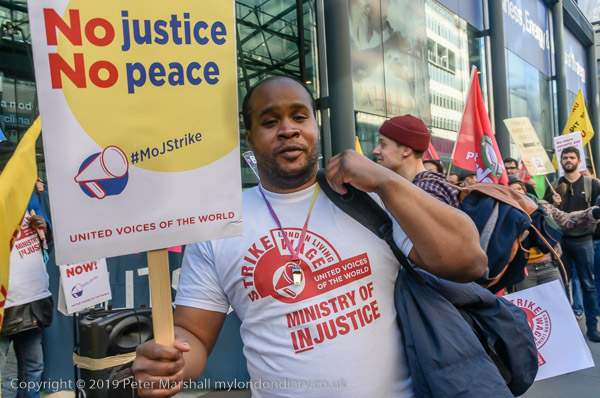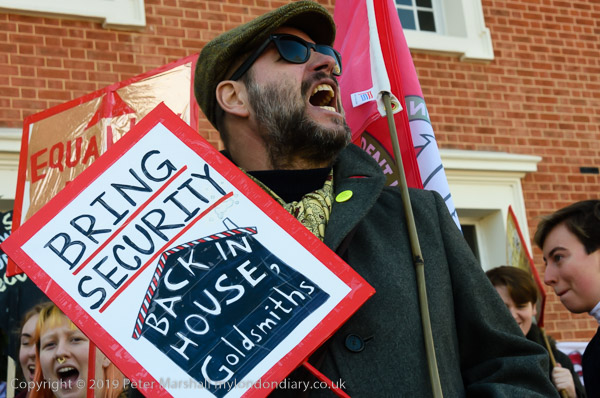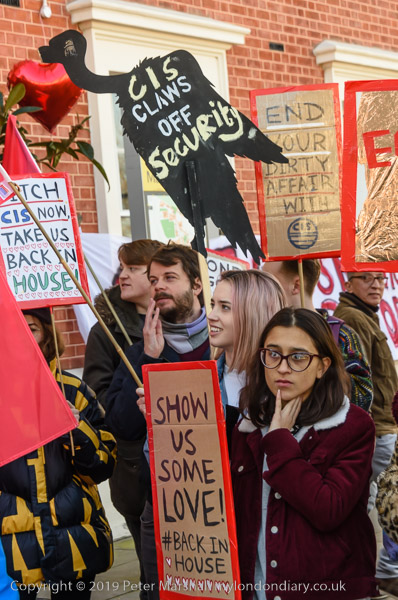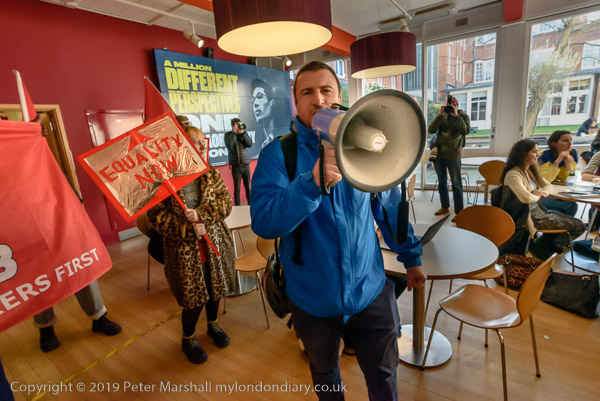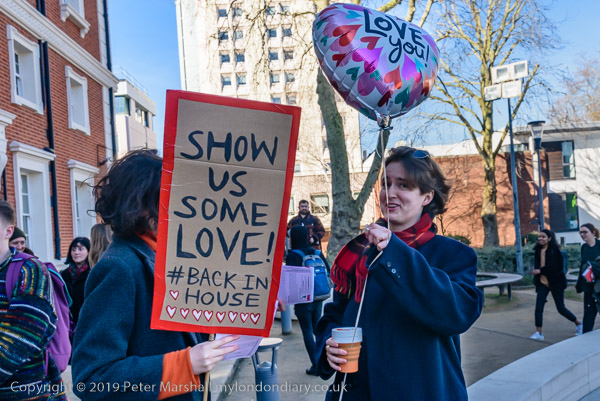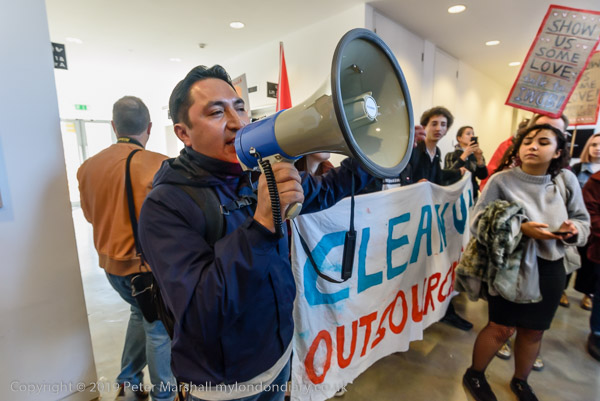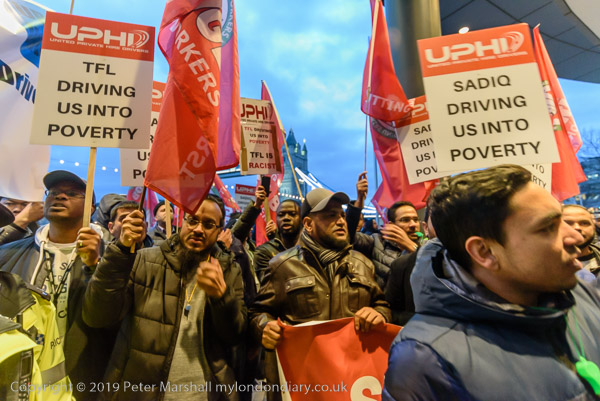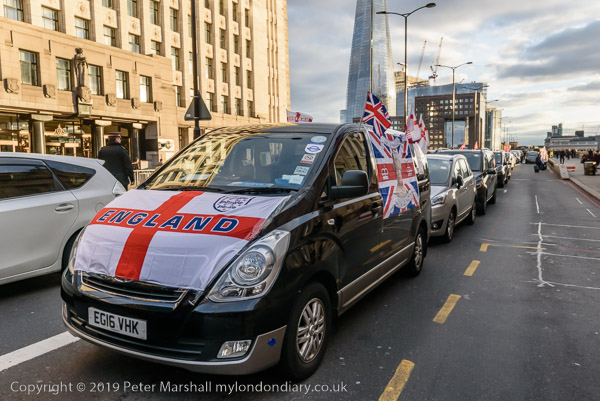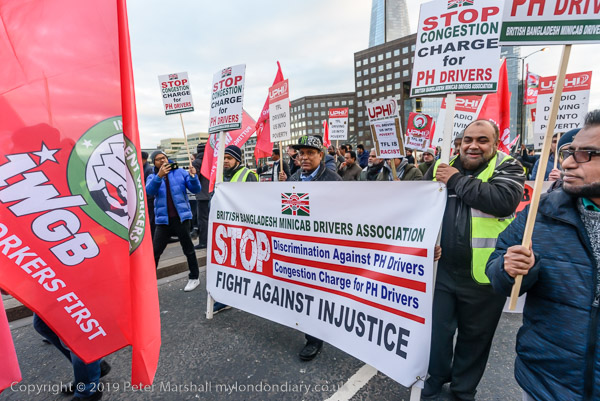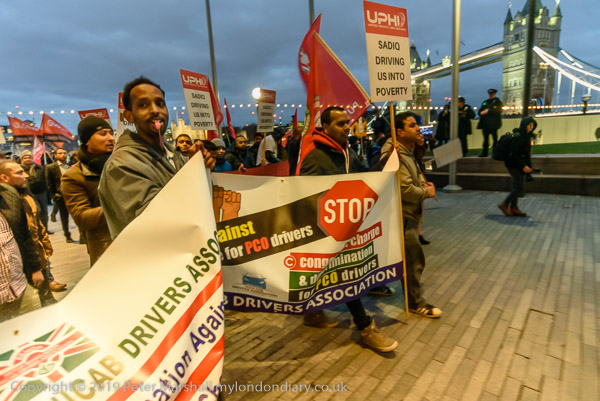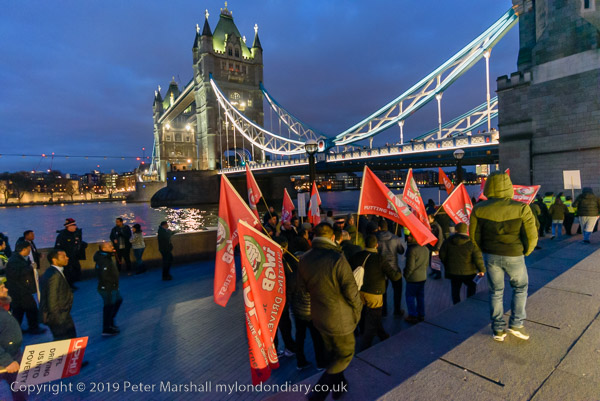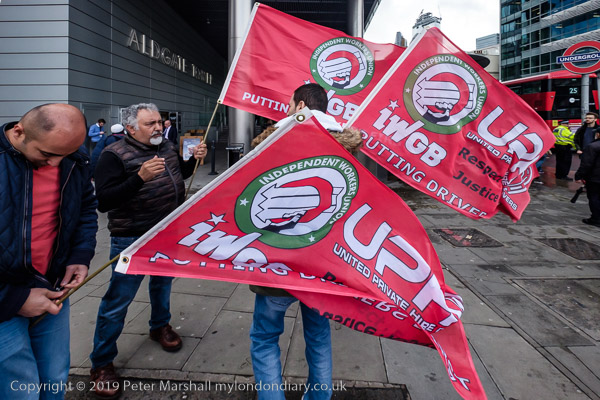
Uber drivers in London claim that on average they earn £5 an hour after taking into account their expenses, well below the national minimum wage and less than half the London Living Wage, the independently assessed minimum needed to live in London.
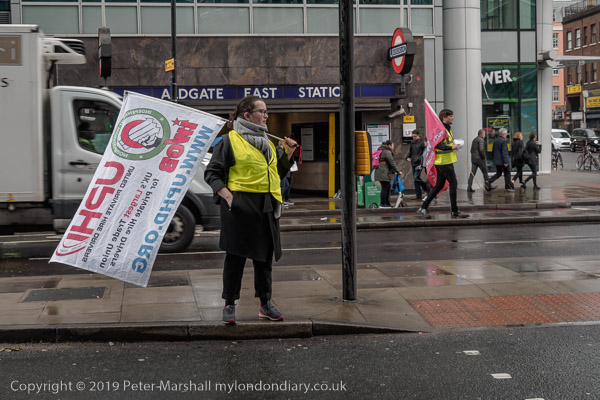
United Private Hire Drivers, a branch of the IWGB – Independent Workers Union of Great Britain – has been recruiting and organising private hire drivers including those working for Uber and organised a protest outside the Uber offices in Aldgate on the day before Uber’s Wall Street share flotation. The flotation at $45 per share meant a bonus of billions for Uber’s founders and for early investors including Amazon’s boss, Jeff Bezos and disgraced cyclist Lance Armstrong but absolutely nothing for the drivers.
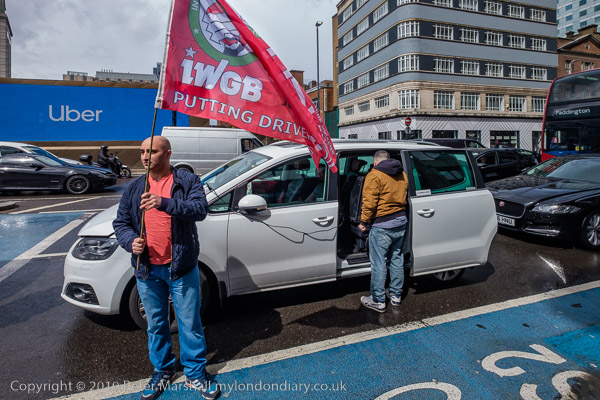
Those who bought into the shares at the flotation may also have lost, unless they sold their shares at exactly the right time; the shares had lost around 7% at the end of the first day of trading and have only very briefly peaked above the opening price. In August they slumped down to around $32. Of course they may rise again – particularly if Uber ever manages to make money.
Despite cheating and exploiting its workers, avoiding tax and failing to properly recognise the status of the workers who drive for it, Uber has still never made a profit and may never do so. Of course it has done very nicely for the people at the top of the organisation – and those early investors.
In some respects, Uber certainly does point to the future of private hire, and highlights the antiquated and expensive nature of our London black cab system. And it provides a service many find very useful if not always entirely necessary, but at the expense of both its drivers and tax payers in general, cheated out of tax.
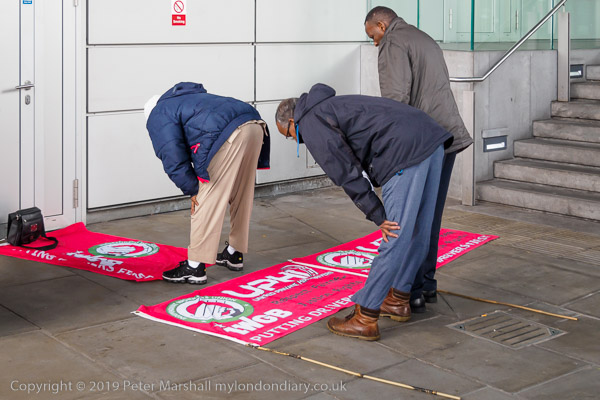
Better and cheaper true public transport services could do much to reduce the need and the desire for the service Uber offers, and there seems to be no inherent reason why a similar public service could not replace both Uber and black cabs and other hire services, although paying drivers decently and providing proer conditions of service as well as paying taxes would inevitably increase the cost to users.
The drivers say that fares need to be increased to £2 per mile and that the commission to Uber, currently 25%, needs to go down to 15%. They want an end to unfair dismissals for for Uber to respect the rights of drivers as workers which were confirmed by an Employment Tribunal ruling in 2016.
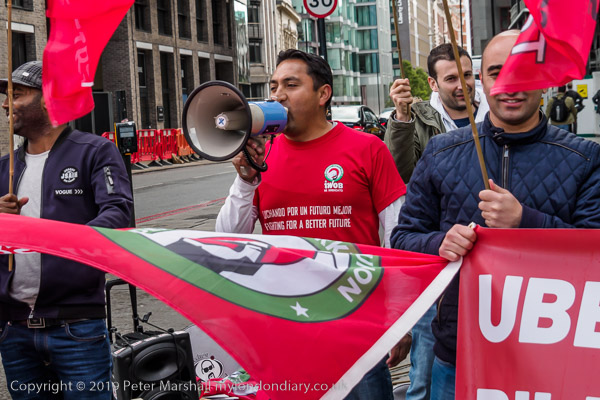
The protest involved drivers boycotting the Uber app from 7am to 4pm, and it was impossible to know how successful that had been. But there were rather fewer drivers than I expected outside the offices and blocking one lane of the busy road, though I left before the protest was over.
All photographs on this and my other sites, unless otherwise stated, are taken by and copyright of Peter Marshall, and are available for reproduction or can be bought as prints.
There are no adverts on this site and it receives no sponsorship, and I like to keep it that way. But it does take a considerable amount of my time and thought, and if you enjoy reading it, please share on social media.
And small donations via Paypal – perhaps the cost of a beer – would be appreciated.
